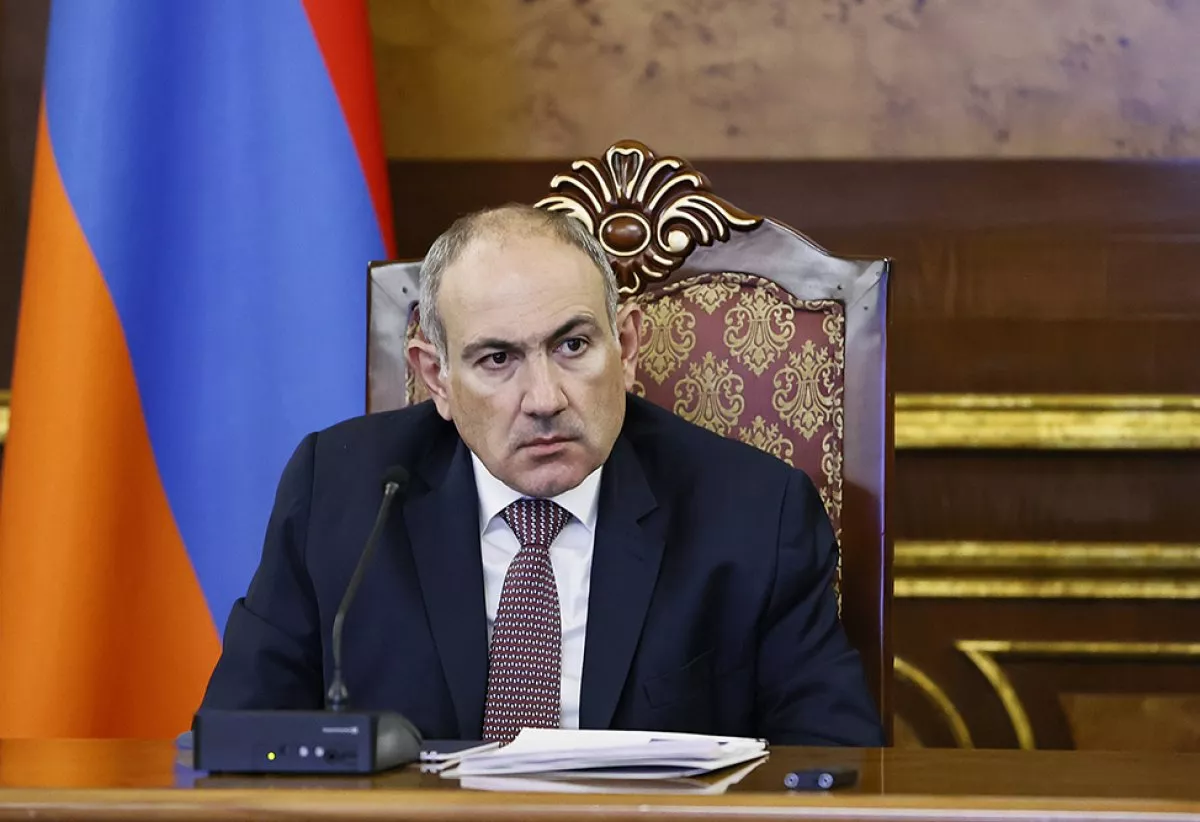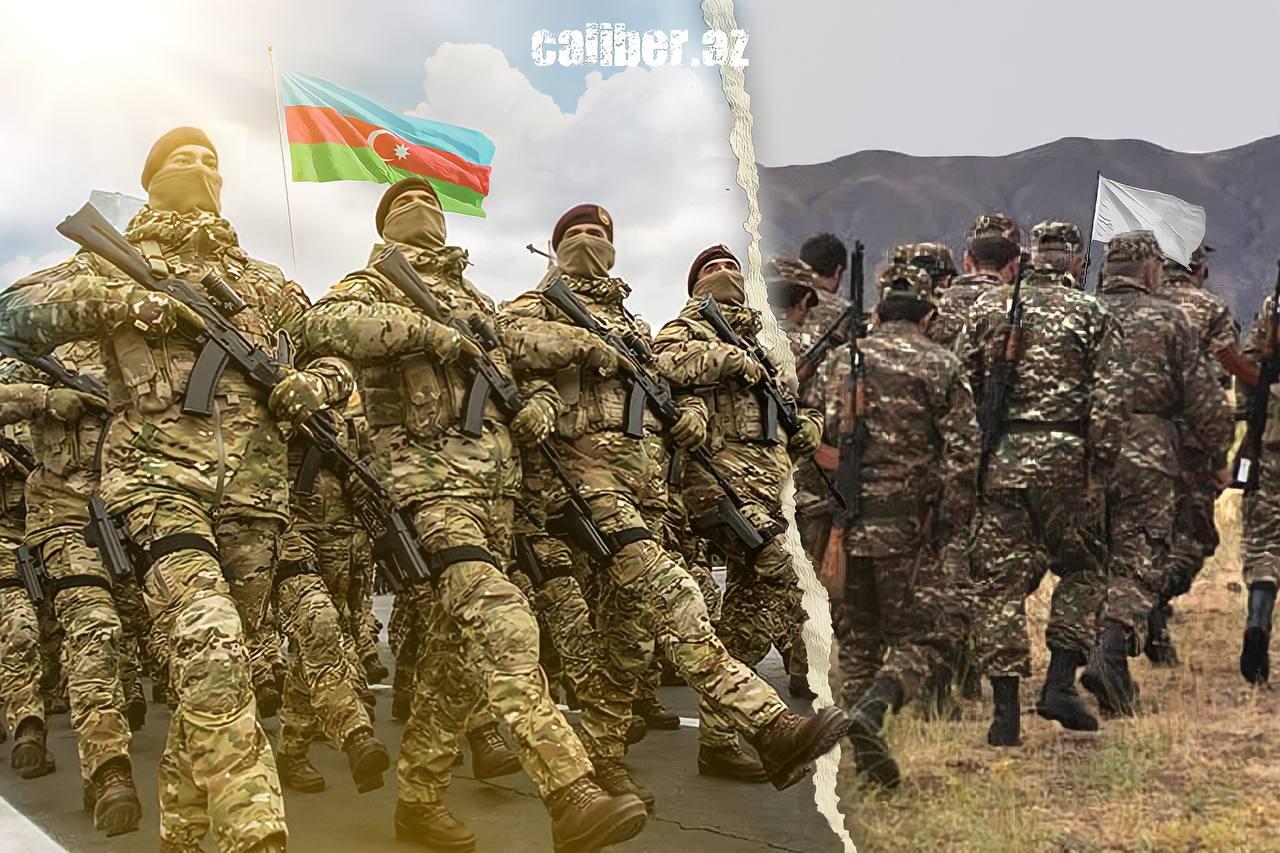Pashinyan's empty peace rhetoric A facade of Armenian pacifism
Armenian Prime Minister Nikol Pashinyan responded on his Facebook page to statements made by President Ilham Aliyev in an interview with local television channels. The response consisted of twelve points, some of which Pashinyan referred to as proposals. In this article, we will try to examine some of the most interesting, in our view, points raised by Pashinyan.
Firstly, Pashinyan attempted to mock the toponym "Western Azerbaijan," noting that this term can only be applied to the western regions of the Republic of Azerbaijan, and he even went as far as to list them.
"When Azerbaijan is using the narrative of ‘the issue of return of Western Azerbaijan refugees’ it is closing the possibility of any discussion by using this wording, because it makes it evident that it is attempting to use the issue of refugees to question the territorial integrity of the Republic of Armenia, a sovereign state and subject of international law, and to form territorial demands against Armenia. First of all, in order to discuss the issue, Azerbaijan must abandon the ‘Western Azerbaijan and similar narratives,'" Pashinyan wrote.

He "forgets" that the toponym "Western Azerbaijan" is historical, not political. Before making claims about it, it would be wise for him to study the history of the region.
At the same time, Pashinyan tried to appear constructive and fair, subtly "jabbed" at Armenian nationalists by designating the western regions of the Republic of Armenia as "Western Armenia." "There is no Western Armenia beyond this, and cannot be," the prime minister emphasized. However, in the Declaration of Independence of Armenia (and as we know, its articles are effectively part of the Armenian constitution), there is a mention of the eastern regions of Anatolia as "Western Armenia." This clause, which is nothing more than territorial claims against Türkiye, still remains in Armenia's core documents and resonates much louder than any "constructive" statements made by the Armenian leader.
Regarding Ilham Aliyev's demand to terminate arms contracts and return already purchased weapons, Pashinyan writes: "By questioning the right to have a defence-capable military in the outline of the circumstances mentioned in the previous point, official Baku is attempting to gain an opportunity to carry out unimpeded aggression against the Republic of Armenia." A little further on, he presents a proposal closely linked to the previous point: "To form a mechanism for negotiating around mutual arms control, quota allocation, restrictions of use of armaments."
It turns out that Yerevan is once again attempting to shift the conversation about armaments towards the idea of military parity. Military parity, in turn, is meant to create the illusion of some sort of moral parity. In reality, Armenia, as a country that for 30 years blatantly violated international law, has no right to speak of any parity. The fact that it avoided the fate of Nazi Germany is entirely the "achievement" of the hypocritical international community, or rather its powerful members, who have indulged and continue to indulge the Nazi ideology of global Armenianism for their own interests. By proposing such an absurd point, Pashinyan once again demonstrates his inability to assess the situation soberly, his blind trust in the promises of Western patrons, who are ready to throw their distant satellite into the furnace of their ambitions at the first opportunity.
Next, Pashinyan calls for a mutual renouncement of escalatory rhetoric, clearly referring to the conditions set by Baku. The Armenian prime minister seeks to portray himself as a pacifist, suggesting that "we speak softly, while the Azerbaijanis communicate with us through ultimatums." This argument is nothing but blatant hypocrisy. The issue is not with the rhetoric but with the actions. While repeated declarations of affection for Azerbaijanis may be made, the actions remain clear – Armenia is arming itself and, most importantly, continues to maintain territorial claims against Azerbaijan in its constitution. Therefore, Yerevan has no moral ground to propose anything until it abandons its own escalatory actions. Otherwise, Baku’s “escalatory” rhetoric will turn into actions, but not escalation – rather, into measures to restore calm.

To add to the mix, Pashinyan once again calls for a "Peace treaty, which is 90% ready." In other words, it lacks the remaining 10%, which represents Baku's key demands.
Among the positive points, one can highlight the proposal to continue the demarcation process based on the experience and regulations developed by the joint commissions of the two countries, the abandonment of legal claims against each other, and, finally, the dissolution of the OSCE Minsk Group.
The latter point may be seen as the only new step towards a peace agreement. Recall that just a couple of weeks ago, Pashinyan stated that Yerevan would only agree to the dissolution of the Minsk Group after the peace agreement was signed. Now, he demonstrates a willingness to separate these two events.
However, there is no certainty regarding the Armenian prime minister’s readiness to take even this small step forward. The issue lies in the uncertainty of whether he is prepared to consider the aforementioned points individually or is mistakenly presenting them as a package. Overall, these points appear as a rather ostentatious stance, revealing a disregard for Azerbaijan's legitimate demands, and, by extension, a lack of attention to the gravity of the situation and the future of his own country.








